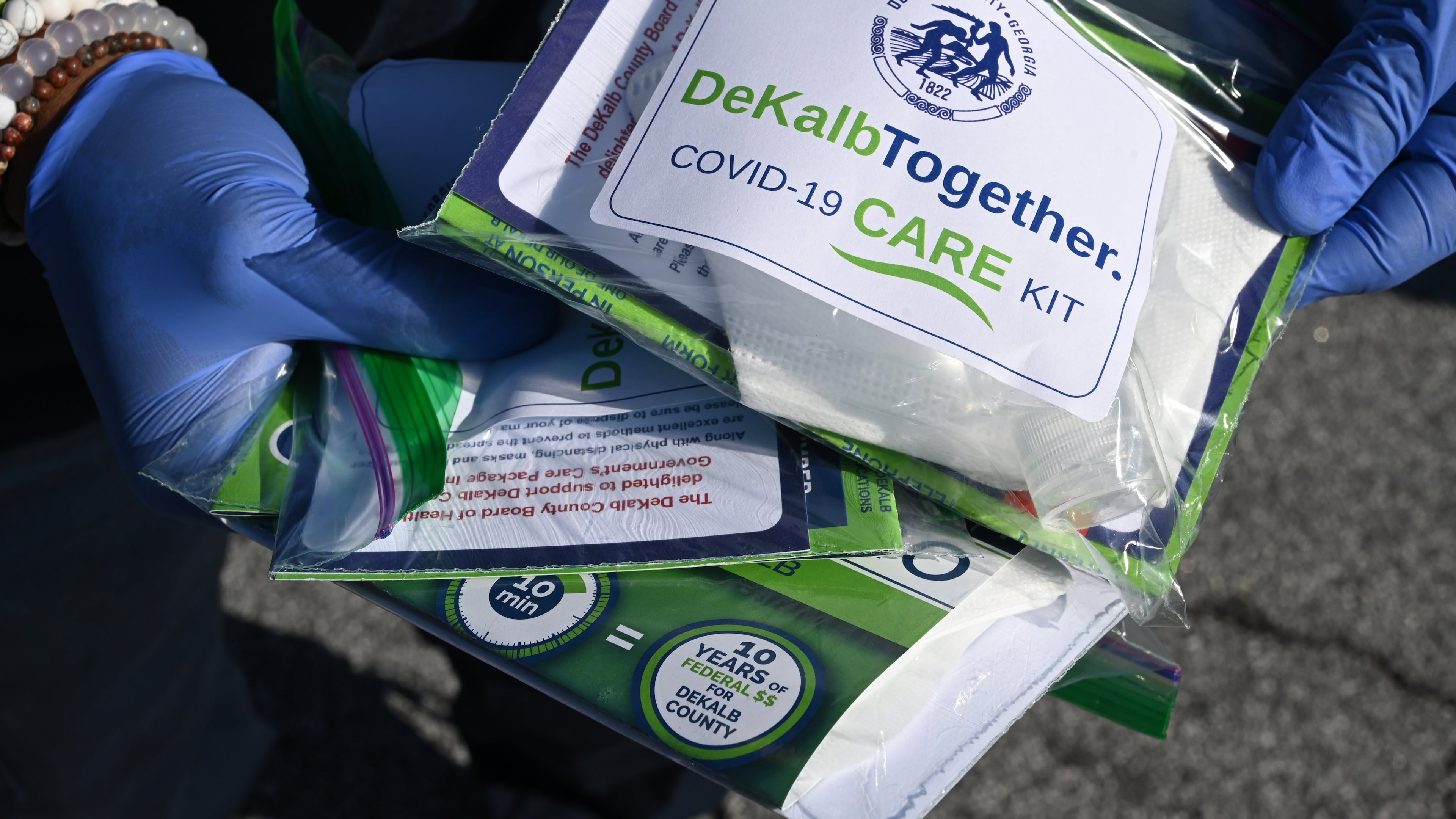DeKalb cities want a cut of county’s federal coronavirus aid

DeKalb's cities are pushing for a cut of the $125 million that the county has already received in federal coronavirus aid.
The DeKalb Municipal Association issued a proposal this week that would take about 25% percent of the funding off the top and leave it in the hands of the county. The rest would be divided among the county and cities on a per capita basis.
During a contentious Friday morning meeting with county commissioners, several mayors said they are closer to the ground and better able to address the specific needs of their communities. They said a direct infusion of the federal funds would help them assist local businesses more quickly and allow them to offer things like hazard pay to first responders, which their budgets have thus far made impossible.
“The slower we react the fewer businesses are gonna be left for us to support,” Dunwoody Mayor Lynn Deutsch said. “Because once they close their doors it’s gonna be really hard for them to come back.”
“Really we’re just looking for a fair allocation of funds,” Doraville Mayor Joseph Geierman said.
Under the federal CARES Act adopted in March, counties and cities with populations in excess of 500,000 people were given money to address the COVID-19 crisis and related expenditures. The city of Atlanta and the metro area's four largest counties — Cobb, DeKalb, Fulton and Gwinnett — all received aid.
Smaller cities and counties did not receive direct funding.
In DeKalb, CEO Michael Thurmond has already released an initial spending plan that includes funding for mobile testing units; hazard pay for front-line county workers; a small business loan program; and several other initiatives.
It does not include direct allocations for cities.
Some county commissioners seemed open to the idea of allowing municipalities to use money as they see fit, at least as a general concept.
Jeff Rader said he’d like to see more detailed outlines of city’s expected expenditures. Even then, he said he’d like to see a system where the county maintains ultimate “authority and accountability” for how the money is spent.
Thurmond has previously expressed similar concerns, saying he doesn’t want to see an inspector general knocking on the door anytime in the future.
Commissioner Mereda Davis Johnson, meanwhile, was vocally opposed to any kind of per capita distirbution. She said the county provides services to all residents, city or not, and pointed out that many of the areas hardest hit by COVID-19 are in unincorporated parts of the county. Funding should follow the virus, she said.
Davis Johnson also balked at the idea of allocating money in a similar fashion to local sales tax collections.
“This cannot be compared to SPLOST,” she said. “We're talking about saving lives during this pandemic. Not about capital improvements.”
Davis Johnson, fellow Commissioner Larry Johnson and Thurmond all said they were caught off guard by the mayors’ presence during Friday’s virtual meeting, which was a special-called gathering of the commission’s finance, audit and budget committee.
Thurmond has already butted heads with certain commissioners over CARES Act and other coronavirus spending. He likely added fuel to the inferno Friday by suggesting the current state of emergency in the county allows him to spend as he sees fit.
In normal times, the CEO and his administration generally make spending and budget recommendations which must be approved by the county commission.
“Is it your position that you can spend any amount of money ... without board approval?” Commissioner Nancy Jester asked during Friday’s meeting.
Thurmond, who was calling in from a food distribution event in Clarkston, said he'd have the county attorney look into it.
“Right now, my role is to feed 1,200 people,” Thurmond said. “And I apologize I didn't wait to get your approval or anyone else’s. And I don’t think the people in this line will care how (the money for the event) was appropriated.”



